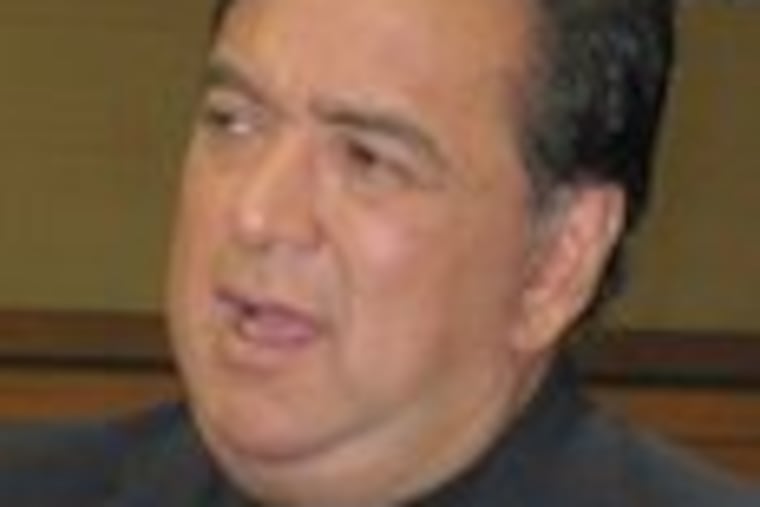Richardson tries to keep the focus on Iraq
HUDSON, N.H. - With violence down in Iraq, many presidential candidates have started talking less about the war and more about economic issues.

HUDSON, N.H. - With violence down in Iraq, many presidential candidates have started talking less about the war and more about economic issues.
Not Bill Richardson.
In an eleventh-hour attempt to boost his all-but-forgotten candidacy, the Democrat from New Mexico is highlighting his pledge to remove every American soldier from Iraq within a year of taking office.
"Is there a difference between the Democrats on Iraq?" asks his new television commercial now running in Iowa and New Hampshire. "There's a big difference."
The ad proceeds to criticize Hillary Rodham Clinton, Barack Obama and John Edwards by name, a rarity in this political season. While those three Democratic candidates are committed to ending the war, all have said they would leave U.S. forces in Iraq longer than Richardson would.
Wednesday in Iowa, Clinton said she expected to be able to get "nearly everybody" out of Iraq in a year. Last night, Richardson denounced that as "a stunning flip-flop."
Richardson's decision to call out his rivals - and differentiate himself from the rest of the field - culminates a frustrating year for his aides, supporters and admirers.
Invariably, he has been seen as the fourth candidate in a two- or three-person race.
According to current polls, he stands fourth in Iowa, fourth in New Hampshire, no better than fourth nationally.
"I don't understand why he's polling at such low numbers," said Gordon Webber, 48, a mason, who drove an hour to see Richardson at a high school here Wednesday morning. "You look at the candidates, compare their experience, and he blows everybody away."
Richardson does have an impressive resume. He is governor of New Mexico. He has been a congressman, the secretary of energy and ambassador to the United Nations.
Along the way, he has gained a reputation as an international trouble-shooter, traveling to North Korea, Iraq, Afghanistan, Sudan and Cuba, among other places. He has defused crises, opened doors, hammered out agreements, and won the release of Americans held against their will.
"President Clinton used to say, 'Bad people like Richardson. Send him over to talk to them,' " he says.
There were moments earlier this year, especially in Iowa, when he seemed on the verge of breaking into the top tier of candidates. But it hasn't happened thus far, and now time is short.
He has been hamstrung by a lack of money; through Sept. 30, the most recent date for which figures are available, he had raised $19 million. Clinton had raised $90 million, Obama $80 million.
He has been haunted by gossip, which he dismisses, that his real goal is to be vice president or secretary of state.
He has not dazzled in the debates; often, his supporters say, he hasn't been given equal time. And what is often seen as an engaging, self-deprecating sense of humor comes across as a lack of gravitas to some.
"I get the sense that the media pushes certain people," said Michelle McCarthy, 47, a medical transcriptionist and Richardson supporter. "He's not getting the coverage. Part of it's the money, I'm sure."
Richardson, the first Latino to make a serious run for president, also comes up short when it comes to celebrity endorsers.
Clinton has Bill. Obama has Oprah. Edwards has singers Jackson Browne and Bonnie Raitt.
Richardson has Judge Reinhold, the actor best known as Eddie Murphy's sidekick in the
Beverly Hills Cop
movies.
The candidate's position on ending the war is not new for him; he laid it out months ago. The emphasis, though, is more pronounced this week, as is his attempt to link Iraq to virtually every other issue on the national agenda.
Unless the war ends, he says, America cannot repair its image abroad.
Or deal with the terrorist threat in a comprehensive, multilateral way.
Or pressure Iraq's ethnic groups to negotiate a lasting political solution.
Or work with other nations in the Middle East to create regional stability.
Beyond that, he says, Iraq has to be the central issue because it has profound domestic consequences.
Ending the war, he says, would free enough money to move toward universal health care, improve education, launch a serious effort to develop new energy sources, and, eventually, balance the federal budget.
"Somehow, the war has dimmed a little bit as the centerpiece of this campaign," he told a crowd in Manchester this week. "I intend to bring it back."
As trailing candidates often do, Richardson makes an impassioned plea for his audiences to ignore the polls, the media coverage and every other indicator that reflects poorly on his prospects.
"This race should not be decided by who has the most famous supporters, who has the most money, who has the best and biggest political pedigree, or who's the most glamorous, although," he said with a laugh in Manchester, "we're working on that.
"It should be about who can change this country, who can bring this country together, and who is qualified to lead this country . . .
"We're not going to let the smarty-pants set in Washington decide who's going to be president. You guys like underdogs, right? You like upsets."
He hopes that focusing on the war, even as it has receded in political prominence, will produce the desired result.
Read Larry Eichel's previous stories and other coverage at
campaign2008